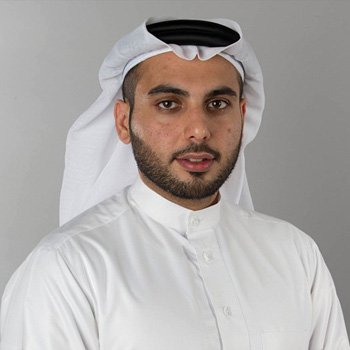
Bahrain
To what extent are corporate PPAs presently deployed and what sort of structure do they take?
Independent electricity plants owned and controlled by private sector companies produce approximately two-thirds of electricity in Bahrain, and their overall output is connected to the national grid under PPAs between the Electricity and Water Authority ("EWA") and the independent provider. [1]
Long-term power purchase agreements are seen as an incentive by a competitive procurement mechanism for attracting private investors to develop renewable energy projects in Bahrain. [2]
[1] Bahrain Diplomatic Handbook Volume 1 Strategic Information and Developments (International Business Publications, USA, 2018 Edition)
[2] The Kingdom of Bahrain National Renewable energy Action Plan (NREAP) Executive Summary (Sustainable Energy Unit, Bahrain, January 2017)
Do the country's regulators allow corporate owners to purchase (1) directly from a facility, or (2) from a choice of suppliers?
Pursuant to article 2 of the Electricity and Water Law No. 1 of 1996 (“Electricity Law”) in the Kingdom of Bahrain (“Bahrain”), with the exception of personal use, no natural or legal person or any entity not affiliated with the Ministry of Water and Electricity may produce or distribute electricity except with a written license issued by the Minister of Water and Electricity, in such cases and under the conditions issued by a decision of the Council of Ministers. [1]
[1] Electricity and Water Law No. 1 of 1996
Other than the generator and the off-taker, are any third parties commonly party to the PPA structure (e.g. a utility or other market agent)?
Information not publicly available.
Is a generator permitted to sell electricity directly to an end user? If so, do they require a licence or other form of authorization?
EWA is the sole body responsible for electricity transmission, distribution and grid operations.[1] Please see Third parties.
[1] The Kingdom of Bahrain National Energy Efficiency Action Plan (NEEAP) (Sustainable Energy Unit, Bahrain, January 2017)

Bahrain
What are some of the technical, political, financial or regulatory challenges to corporations adopting green energy in the short/medium term in your country and how have these challenges been overcome (or how can they be overcome)?
Private production of electricity in Bahrain requires authorization from the relevant government authorities in Bahrain (either through legislation or concessions).
The current Electricity Law allows for the private generation of power. Each IPP scheme, however, requires a written authorization from the relevant minister and an approval from the Cabinet. As the law was drafted at a time when renewable energy was yet to be considered a viable alternative source of energy, this scheme is not suitable to stimulate private investments in renewable energy as it is geared towards large-scale conventional power plants, where fuel input is an important consideration.
Renewable energy technologies have substantively matured, the costs have declined, and the options have improved.
To stimulate investment in renewable energy, the current law needs to loosen its requirements and allow private deployment of renewable energy plants without an extensive prior authorization process from the government. [1]
The laws in Bahrain do not authorize exporting onsite generated energy to the main grid. To stimulate investments in renewable energy, especially by households and commercial users, it is important to allow renewable energy plants to export the excess power to the grid.
Under the current legal framework and market structure, EWA is the sole buyer and distributor of electricity in Bahrain. To motivate private developers to invest in renewable energy, there needs to be a mechanism whereby private investors are able to sell the power produced from renewable sources and generate income. The key components of such mechanism are price and guarantee of purchase of electricity from renewable sources. Thus, it is important to set a policy that will define a purchase price for electricity from renewable sources and guarantee the purchase of such electricity. Such policies can be either feed-in tariff policy, or auctions or public competitive tenders. [2]
Electricity in Bahrain is mainly produced from natural gas, and, as a result, the cost of power generation depends highly on the gas price. Therefore, according to estimations of planned gar price increases, the cost of electricity supply will increase even more with time. [3]
In addition to the above, another technical and financial challenge Bahrain faces is the inefficient electricity production system, and the reinjection of a relatively large quantity of gas to support enhanced oil recovery. As a result, Bahrain uses almost three-quarters of its primary energy for electricity production, energy industry own use and non-energy use. [4]
Although Bahrain has attempted to subsidize electricity tariffs, that in itself is not efficient. In this regard, and as a way to overcome the same, EWA along with the SEA have introduced, and are implementing, the National Energy Efficiency Action Plan (“NEEAP”) whereby they are moving towards using less energy for the same output or service, cutting costs in the long-run. [5]
[1] The Kingdom of Bahrain National Renewable energy Action Plan (NREAP) (Sustainable Energy Unit, Bahrain, January 2017)
[2] ibid.
[3] No. (4).
[4] No. (4).
[5] ibid.

Bahrain
Are there any anticipated regulatory changes which will alter the regulatory landscape for corporate green energy and corporate PPAs?
Bahrain’s National Renewable Energy Action Plan (“NREAP”) was finalized in October 2016. The NREAP identifies feasible renewable energy options for Bahrain, sets the targets, and proposes policies and initiatives to achieve these targets. In addition, the NEEAP was also introduced simultaneously, whereby the target is to use less energy for the same output or service. [1]
To achieve the aforementioned targets, the decree No. 87 of 2019 was issued for the establishment of the Sustainable Energy Authority (“SEA”). [2]
The SEA proposes initiatives and projects through which sustainable energy sources are updated and developed to increase the percentage of their contribution to the total energy and achieve Bahrain’s strategies for sustainability, safe supply and ways to implement initiatives and projects and to provide them with the necessary support.
The SEA directs the private sector and encourages the establishment of private or joint ventures with other entities that aim to raise energy efficiency and the use of sustainable energy sources to generate electric power. [3]
[1] ibid.
[2] Decree No. 87 of 2019 was issued for the establishment of the Sustainable Energy Authority
[3] No. (5).

Bahrain
To the extent corporate PPAs are deployed, how are prices, terms and risks affected?
| Topic | Details |
| Do prices tend to be floating or fixed? | Information not publicly available. |
| What term is typically agreed for the PPAs? | A contract shall be drawn up according to the model form of contracts approved by EWA. |
| Are the PPAs take-or-pay or limited volume? | Information not publicly available. |
| Are there any other typical risks? | Information not publicly available. |
To the extent corporate PPAs are deployed, in whose favour will the risks typically be balanced?
| Type of risk | Details |
| Volume risk | Information not publicly available |
| Change in law | Information not publicly available |
| Increase / reduction of benefits | Information not publicly available |
| Market liberalisation (if applicable) | Information not publicly available |
| Credit risk | Information not publicly available |
| Imbalance power risk | Information not publicly available |
| Production profile risk | Information not publicly available |

Bahrain
Does your country operate a balancing responsibility scheme?
Information not publicly available.
If your country operates a balancing responsibility scheme, who is the balancing authority and do the generator and offtaker typically undertake balancing themselves?
Information not publicly available.

Bahrain
What significant transactions/deals have taken place in the last 12-18 months?
SEA announced a 3 MW tender for rooftop installations on January 2019. On March 2020, with a total of seven bidders having submitted the proposals, a Bahraini based energy firm called Tarsheed Energy Consultation and Services has submitted the lowest option price (BHD 0.020 per kWh). [1]
The project relates to 66 government buildings in eight locations in Bahrain for the installation of rooftop PV on 120 buildings in the government estate.
The plan is expected to bring online 255 MW of PV capacity by 2025 (providing an estimate of 5% of the country’s demand) and 700 MW of renewable energy capacity by 2030.
The plan is being implemented through the following policies:
- net metering;
- a tender-based FIT scheme; and
- a renewable energy mandate for new buildings. [2]
[1] ‘Bahrain Receives the Bids for 3MW rooftop Solar PV Plant’ (Saudi Gulf Project, 30 March 2020) accessed 25 August 2020
[2] PV Magazine, ‘Bahrain launches 3 MW rooftop tender’ accessed 11 March 2020
What transactions/deals are anticipated to come to market in the next 12-18 months?
A consortium comprising of Saudi Arabia’s Acwa Power and Japan’s Mitsui has been selected as the preferred bidder for the Al-Dur 2 independent water and power project in Bahrain. The aforementioned project is being implemented by contracting with the private sector (i.e. an independent water and power provider). [1]
Al-Dur 2 will have a capacity of 1,500 MW and a desalination component of 50 million imperial gallons a day. EWA reported that it will purchase the power under a 20-year PPA. [2]
[1] ‘The Minister of Electricity Affairs and the CEO inspect the second phase of the Al-Dur Power and Water Plant’ (Electricity and Water Authority, 16 August 2020) accessed 25 August 2020
[2] Meed, ‘Bahrain selects preferred bidder for Al-Dur 2 IWPP’ (Andrew Roscoe, 10 October 2018)




